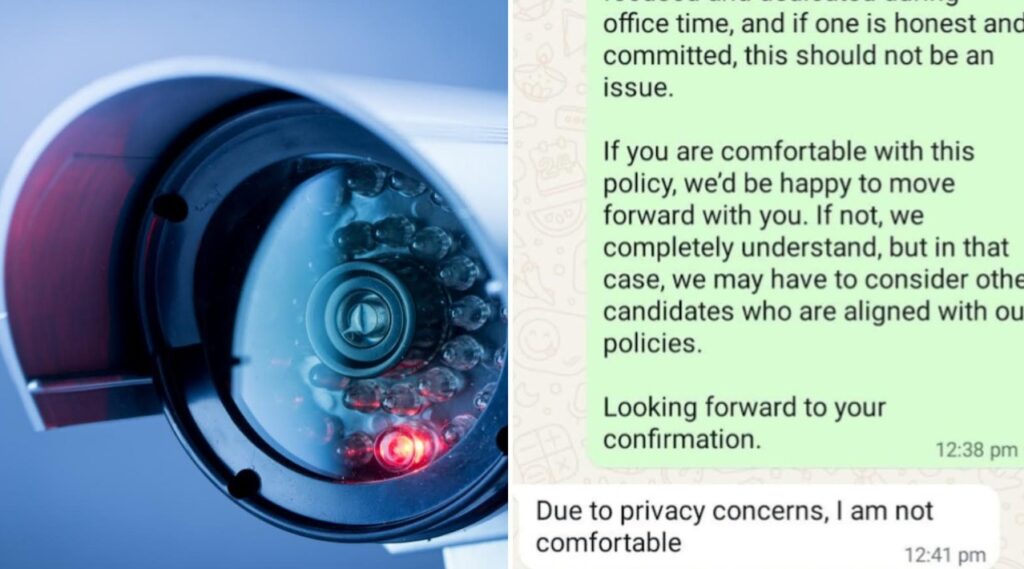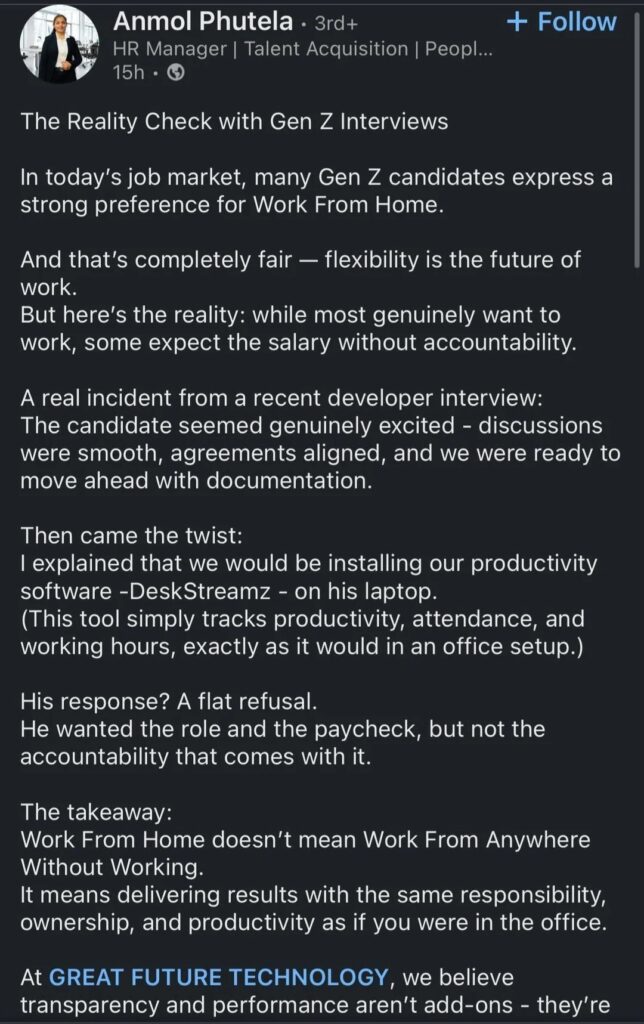“Would You Let CCTV in Your Home?”: Recruiter’s Post on Gen Z’s Remote Work Sparks Online Backlash

“Would You Let CCTV in Your Home?”: Recruiter’s Post on Gen Z’s Remote Work Sparks Online Backlash
Young professionals today are reshaping not just how work is done, but how much oversight is acceptable — especially in a remote setting. One recruiter’s recent LinkedIn post has struck a nerve online, prompting widespread criticism for what many saw as a blatant overreach in the name of productivity.
The post, shared by Anmol Phutela from Great Future Technology, started with an acknowledgment of Gen Z’s growing preference for remote work. She wrote, “And that’s absolutely valid, flexibility is the direction modern work is heading in.”
But things took a turn when she recounted an incident from a recent developer interview. According to her, the candidate had shown excitement and professionalism throughout the hiring process. Both parties were aligned and ready to move ahead with documentation — until one specific requirement changed everything.
The company asked the candidate to install DeskStreamz, a productivity-tracking software that monitors attendance, working hours, and screen activity — effectively replicating an office-like level of oversight in a remote environment. Upon hearing this, the candidate immediately declined to proceed.
Phutela described the reaction bluntly, saying, “He wanted the role and the paycheck, but not the accountability that comes with it.”

She defended the monitoring tool as necessary for ensuring productivity in remote settings. “Work From Home doesn’t mean Work From Anywhere Without Working,” she wrote, adding, “It’s still about taking ownership, being productive, and delivering results — just like in an office.” She concluded by emphasizing that, “Transparency and performance aren’t bonus features, they’re fundamental to the role itself.”
But what she may have expected to be a reasonable take quickly backfired, as the post caught fire online. Many professionals, especially younger ones, were stunned by the idea of installing monitoring software on a candidate’s personal laptop.
One user expressed disbelief, saying, “Lol look at the audacity and entitlement of these people to think they have the right to install a tracking mechanism on the employee’s personal laptop. I double checked to see if it’s a sarcastic post (sic).”
Another pointed out what they saw as a flawed view of productivity, writing, “Productivity is measured by the tasks employees deliver, not by the hours they spend stroking keys on a keyboard. He is absolutely right if he denied that.”
Others questioned the logic of asking someone to compromise their personal property, commenting, “Nobody with a working brain will let you install random shit on their property. Provide him with a company laptop, lol.”
And one particularly pointed response compared the demand to something far more invasive, writing, “It’s not gen z issue mam… It’s your company that’s the issue… Btw will you agree if company wants to install CCTV in your home to track your productivity?? Then why would you install software on their personal asset? You want to track their productivity, give your device, and install whatever you want on it… You can even install stuff remotely.”
The outrage wasn’t just about privacy — it was about principle. Many felt that if a company wants to monitor an employee’s work, it should at least provide the device and the infrastructure, rather than asking individuals to surrender access to their own machines.












